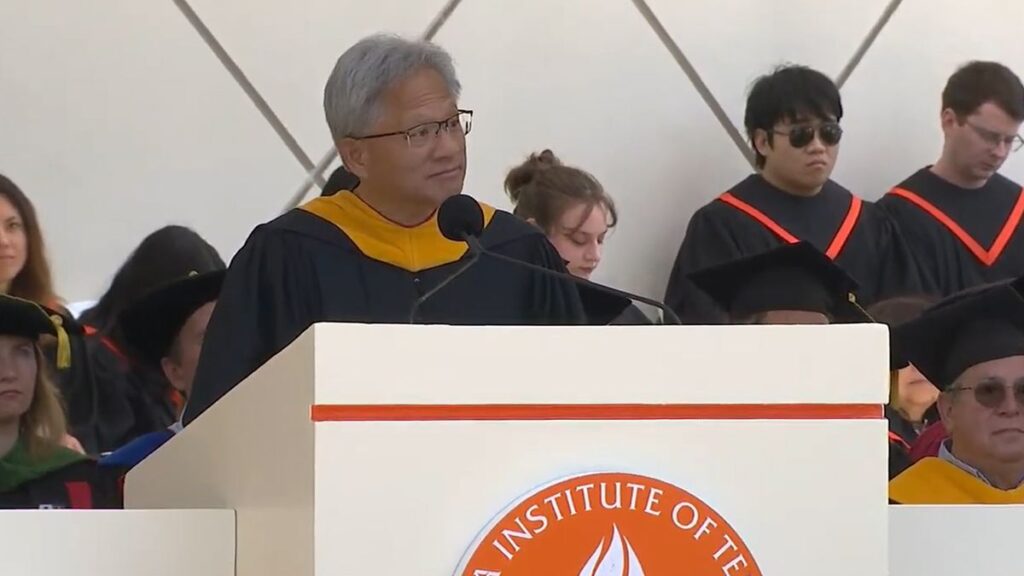Earlier this week, Nvidia CEO Jensen Huang was the keynote speaker at the California Institute of Technology's Commencement for the Class of 2024. Huang, one of the world's richest people, said that Nvidia had once “developed products that were incredibly successful and generated a lot of excitement. Then a year later, we were pushed out of those markets.”
The legendary graphics and accelerated computing company went through some tough times in the '90s – so often that the unofficial company motto, still used internally today, is “We're 30 days away from bankruptcy.”
These setbacks have forced the company to look for markets where it has no customers. “I can guarantee you that where there are no customers, there is no competition,” Huang said. Nvidia’s CEO calls this a “zero-billion dollar market”—a market that has no value today but could be worth billions in the future, like GPU-accelerated computing when Nvidia was founded.
Unlike general-purpose computing chips from Intel and AMD that can do anything, accelerated computing processors are more focused on a specific purpose. This is what led Nvidia down the path of GPUs: because graphics processing is like any other compute-intensive process, the pure processing power of its video cards was a perfect fit for the pure computational power that other industries needed.
Nvidia's investments in accelerated computing, initially focused on consumer GPUs, paid off: its RIVA 128 GPU, released in 1997, sold one million units within four months, allowing the company to reinvest the profits into further research and development.
When NVIDIA was founded, Huang did not yet believe that artificial intelligence would be the main driver of the company's growth. “No one knew how far deep learning could scale, and we would never have known if we hadn't built it,” he said in his speech. He added, “Our logic is, if you don't build it, they won't come.” This is clearly reminiscent of Kevin Costner's Field of Dreams, where the protagonist hears a voice say, “If you build it, he will come.”
Jensen Huang told Caltech graduating class: “If you prioritize your life, you will have plenty of time to do the things that matter.” Graduates should approach their profession – their life's work – with excellence, grit and dedication. Setbacks are bound to happen, but they shouldn't be viewed negatively. Instead, they should be viewed as an opportunity to move in a new direction, the Nvidia CEO opined.
“I want you to believe in something. Something unconventional, something unexplored, but based on knowledge and reason, and do your best to make it happen,” Huang said, adding later in his speech: “The world is unfair and sometimes you find yourself in a tough situation. Just shake it off quickly. Another opportunity is out there, or create your own.”
Jensen Huang's speech at Caltech included several pop culture references, but he's also known as a down-to-earth guy in his trademark leather jacket. He even managed to convince other tech leaders to join him at the night market ahead of Computex 2024.
Jensanity
These traits have made him a media darling and sparked “Gensanity” in Taiwan, but internally he is also known as a good leader, ensuring his team performs at their best. Some employees report feeling extremely stressed during meetings with Huang, which they say is because he holds himself to extremely high standards, not just for his subordinates. One employee even told the China Times, “If you've never been yelled at by Huang, it means he doesn't care about you.”
Yet despite Jensen Huang's meteoric rise, buoyed by NVIDIA's global leadership in AI, and the “Gensanity” fever that spread across Taiwan during his visit there for Computex 2024, the CEO remains humble. After an introduction by Caltech Trustee David Thompson, the CEO began his speech with the words, “It really makes me shudder when I hear that… I hate hearing it about myself.”

